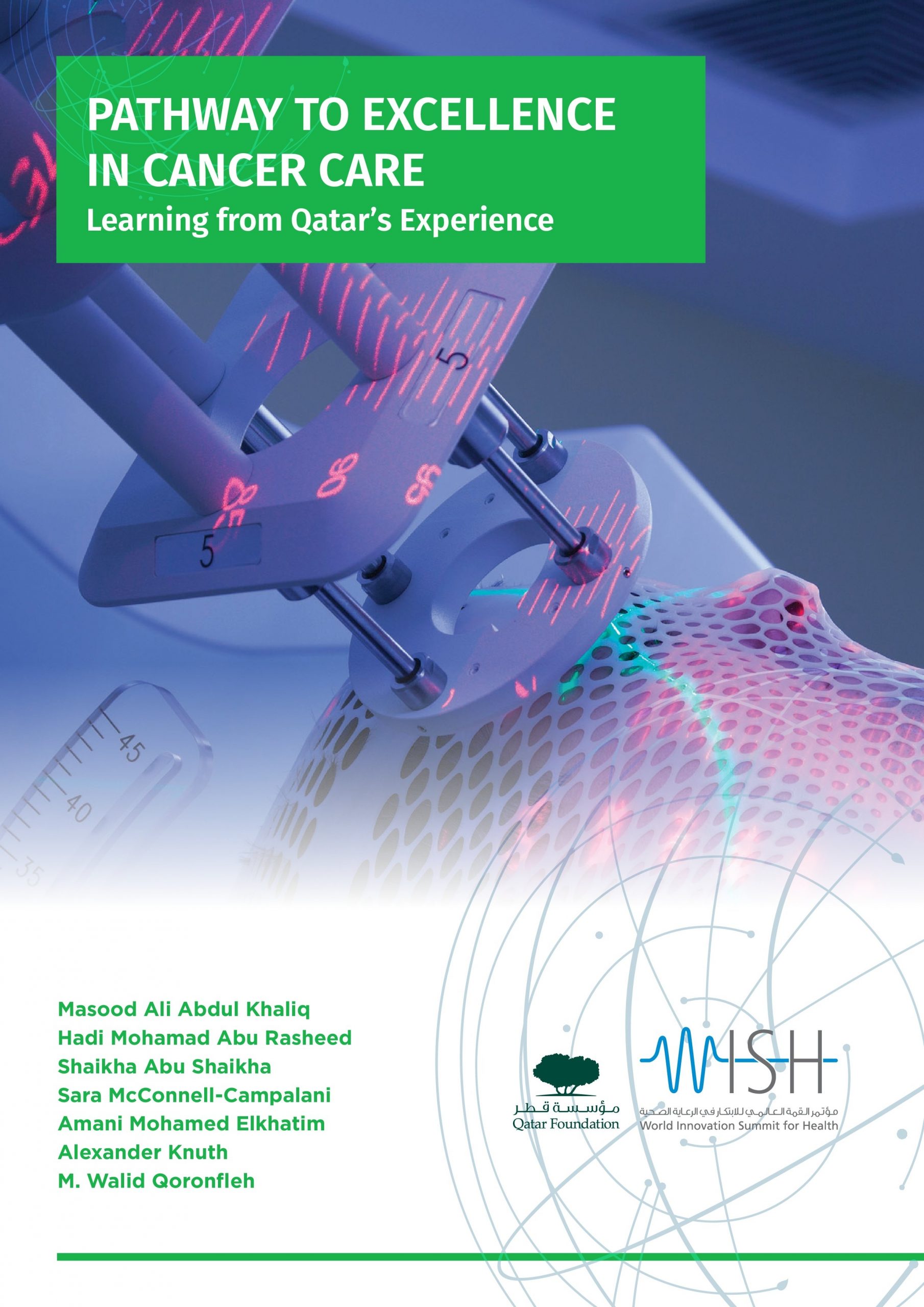Executive Summary
In 2011, Qatar launched the First National Cancer Control Programme in the Gulf Cooperation Council (GCC). The National Cancer Strategy: A Path to Excellence (2011–2016) and the companion document, Qatar National Cancer Research Strategy (2012) transformed cancer care in Qatar. Cancer outcomes are now equivalent to countries with long-established national cancer strategies.
Critical to the success were robust governance structures, informed and committed leadership, comprehensive involvement of all sectors including public and private providers, charities, private sector employers, academic partners and the judicious use of expert groups and subject-matter experts.
Major milestones have been reached in the prevention, early detection, treatment and care of cancer throughout the period the National Cancer Strategy has been in place.
Achievements have included harmonised multi-sectoral awareness, education and myth-busting campaigns aligned to a single national awareness calendar.
A National Breast Cancer Screening Programme, a National Bowel Cancer Screening Programme and an opportunistically ran Cervical Cancer Screening Programme have been established, supported by a dedicated Cancer Screening Call Centre and a Mobile Screening Unit for those hard to reach geographical areas in Qatar.
Internationally peer-reviewed cancer-specific teams that included new and extended roles, the introduction of forefront diagnostic and treatment modalities and a patient-centered approach to the organisation of care have improved clinical outcomes, patient experience and public confidence.
Future development will focus on consolidating areas of significant achievement incorporating emerging evidence and new technologies. This will include evidence-based approaches for public engagement, prevention and early detection, particularly the use of personalised approaches. As with any successful cancer programme, survivorship and transition programmes need to be enhanced to include chronic illness and palliative care models. Rare cancers, further development of local faculty and maturity of Qatar’s high-impact cancer research portfolio are also a focus.
Qatar provides a model that illustrates how the principles of good cancer control are internationally applicable but need to be locally owned and adapted to the country and be culturally specific. It is critical to have clear leadership and governance, as well as the right people in all partner organisations to work collaboratively in achieving a common goal.

